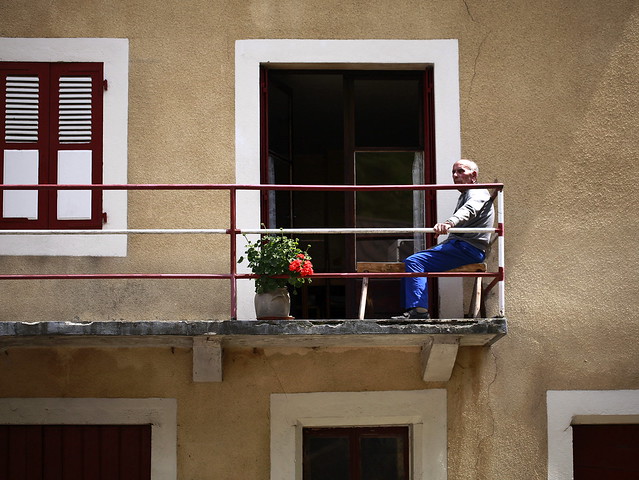
A Year of Isolation and Being Alone
Many of us have experienced more isolation and time alone in the last year than we ever have before.
Some of us feel as if our communities have been stripped away and stolen from us. We long for a return to living in ways we can get together with friends and spend time talking. Some of us have lost people who kept us from feeling alone, and we wonder if our isolation will be permanent.
Others of us have adapted to the physical separation of social distancing. We have found or developed communities online which sustain us and in which we find love and support. Spending time alone does not overwhelm us, though there are things we miss about being with other people.
A few of us have found new comfort and confidence in our experience of being alone. We may see ourselves as more contemplative than we were before the pandemic. Some of us have accomplished tasks we had put off for years. We read books or developed skills for which we did not have time when we were not alone.
We may believe spending a year alone in isolation has changed us. Some of us are more thoughtful or patient, while others are eager to get back to what we thought was normal.
Some of us are afraid to be alone. Many of us have never lived alone before. We have been surrounded by family and friends, roommates and people who love us. Most of us view isolation as a challenge more than a gift.
Our pandemic year has raised questions for us about being alone. How much longer will we be forced to live alone like this? What are the costs, and the benefits for us of being alone?
Could we enjoy living alone?
Lives of Isolation and Being Alone
I know people who choose to live countercultural lives of isolation and living alone.
The monks at New Camaldoli Hermitage, where I am a lay oblate, spend a great deal of their time alone. Their daily schedules are organized around group prayer and manual labor, rest and contemplation.
Life at the hermitage is not about being as holy or as pious as possible. It can be a challenge to explain to other people what I do when I go up to the hermitage on retreat. Sometimes I tell people I am there to spend time not talking to people. It is an excellent place to spend time alone.
For me, monastic life is an antidote to our culture which assumes isolation is a threat. When I am at the hermitage I sit in a rocking chair or take walks and allow myself to pay attention. It is a beautiful place filled with trees and wildlife which overlooks the ocean. The hermitage is a world without wifi or cellphone reception.
Time at the hermitage encourages me to sit still and listen to the stillness all around me, and within me.
The monks at the hermitage practice living in isolation and in community. They balance being alone and engaging with other people. Watching them find and maintain their balance is educational for an extrovert like me.
The monks are more connected online than they used to be. The hermitage has faced the challenges of physical isolation as well. One year I was not able to spend time there because the highway was closed both north and south of the hermitage by winter storms. Last year I was not able to go, not because of the pandemic, but because of the California fires.
Fear of Isolation and Being Alone
Many of us live in fear of being isolated, being alone. We may associate spending time alone with being punished, being sent to our room or to solitary confinement. Some of us feel being isolated means we have been rejected or abandoned.
We do not want to end our lives alone, isolated, with nobody to love or to love us. Who will take care of us if we end up living on our own?
One of the challenges of being alone for me is choosing how I want to spend my time. My mind is apparently fairly adept at generating things for me to think about and things for me to do. The difficulty is sorting out the competing demands and deciding how I would like to spend my time.
It takes some effort and discipline on our part to spend time being calm and still and open. My imagination often carries me away so I cannot spend time in contemplation.
I intentionally slow down, take deep breaths, and listen to stillness. As I listen and pay attention, I am reminded we do not need to be afraid. Being alone is neither a threat nor a punishment.
Communities of Isolation and Listening
My year of isolation and being alone has helped me practice listening in new ways.
I meet online with individual people and groups to explore spiritual life. We have had some obstacles to overcome, but we have survived them. Technical problems have taken some time, but we have figured out how to get things working in the right direction.
The benefits have outweighed the challenges. Being online allows us to overcome the difficulties of distance and time differences. We have built networks of love and support as we talk through questions and insights about spiritual life.
I spend most of my time listening, and asking questions which are as insightful as I can be. We share laughter and tears, our honesty growing through our conversations over time.
Each of us participates from our own place of isolation and being alone. We share our insights and questions, our pain and frustration, our fear and our sense of loss.
Together we share with each other what our isolation and our being alone has given us.
When will we practice isolation and being alone today?
How will we recognize the benefits of isolation and being alone this week?
[Image by jenny downing]
Greg Richardson is a spiritual director in Southern California. He is a recovering assistant district attorney and associate university professor, and is a lay Oblate with New Camaldoli Hermitage near Big Sur, California. Greg’s website is StrategicMonk.com and his email address is [email protected].












